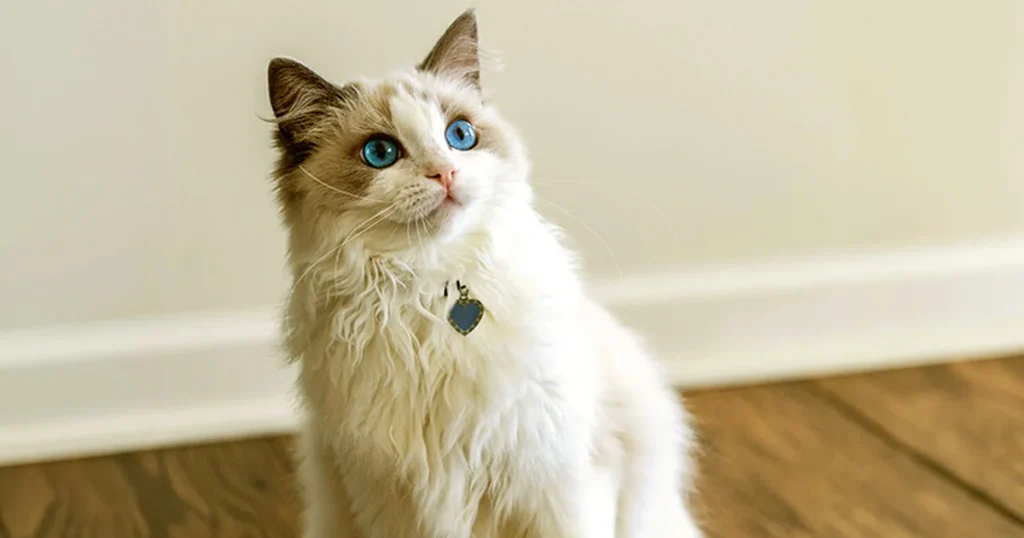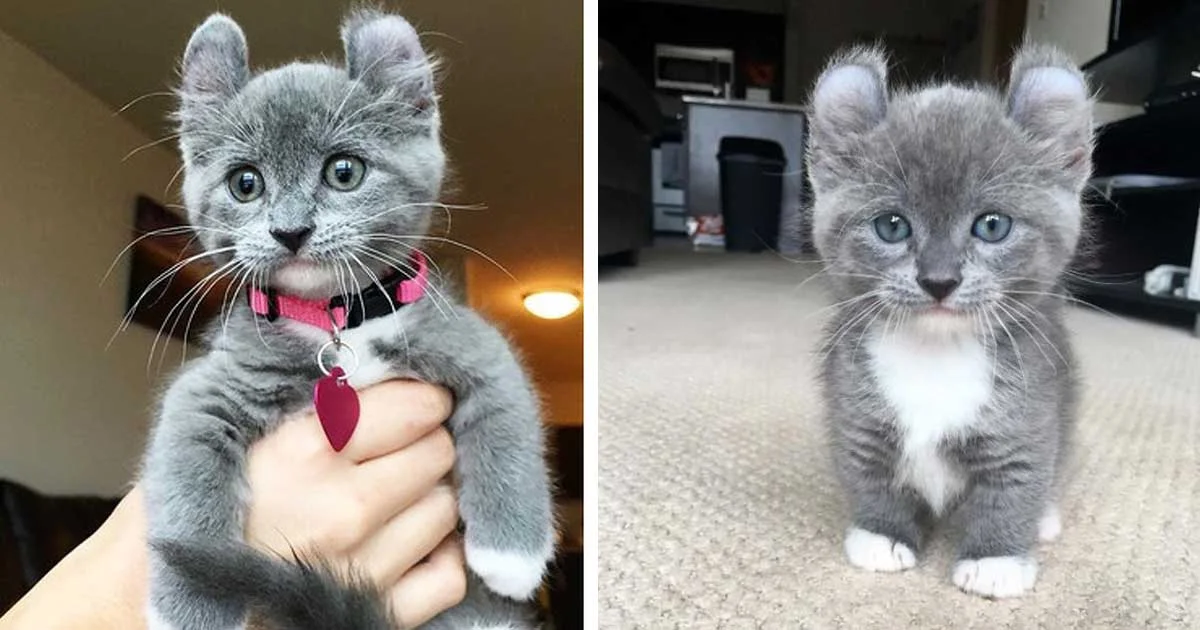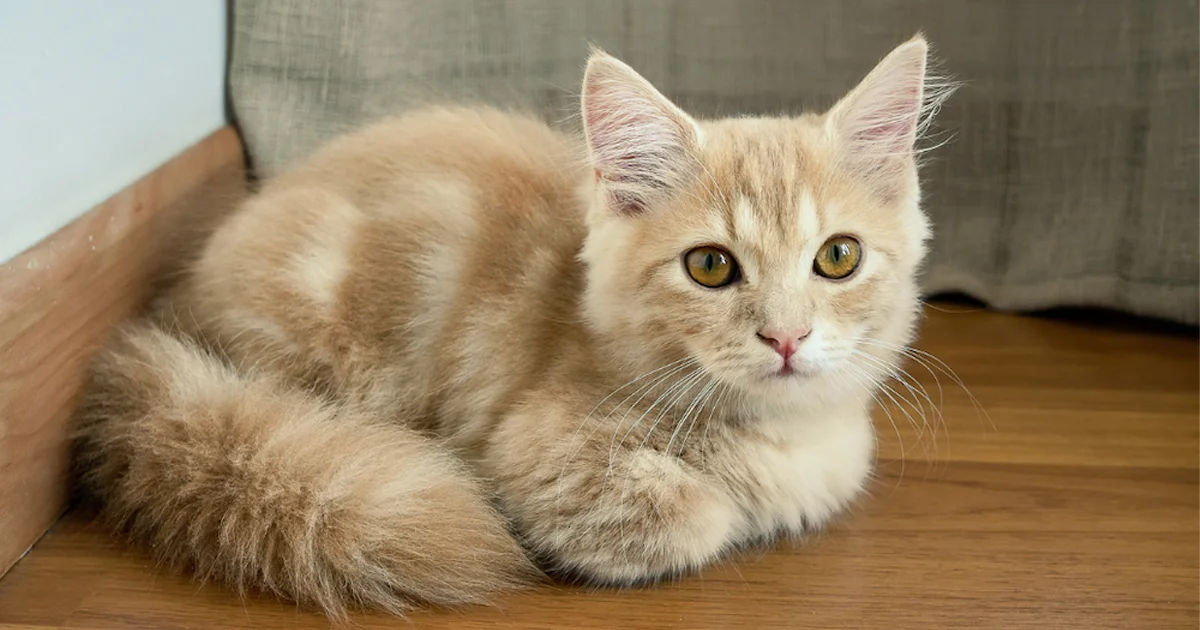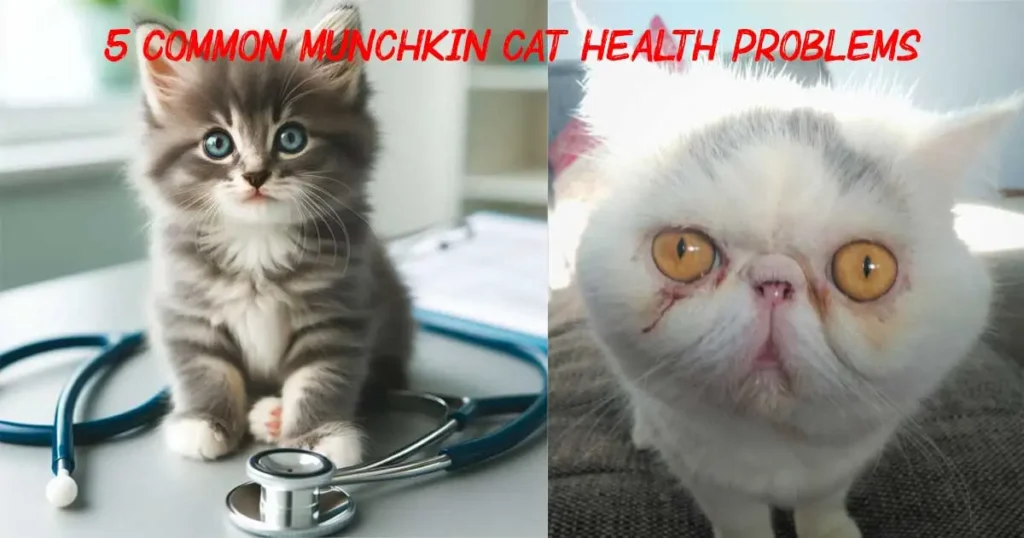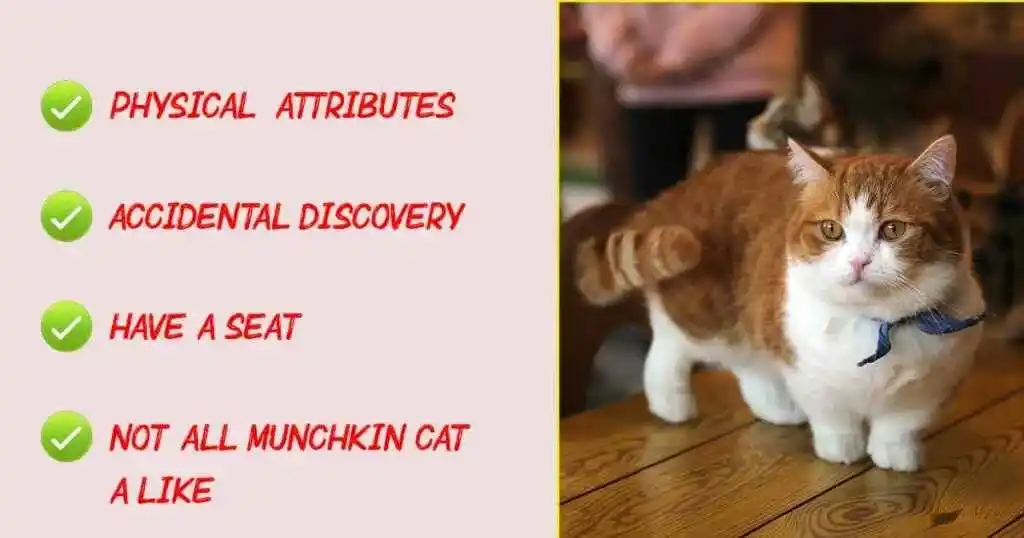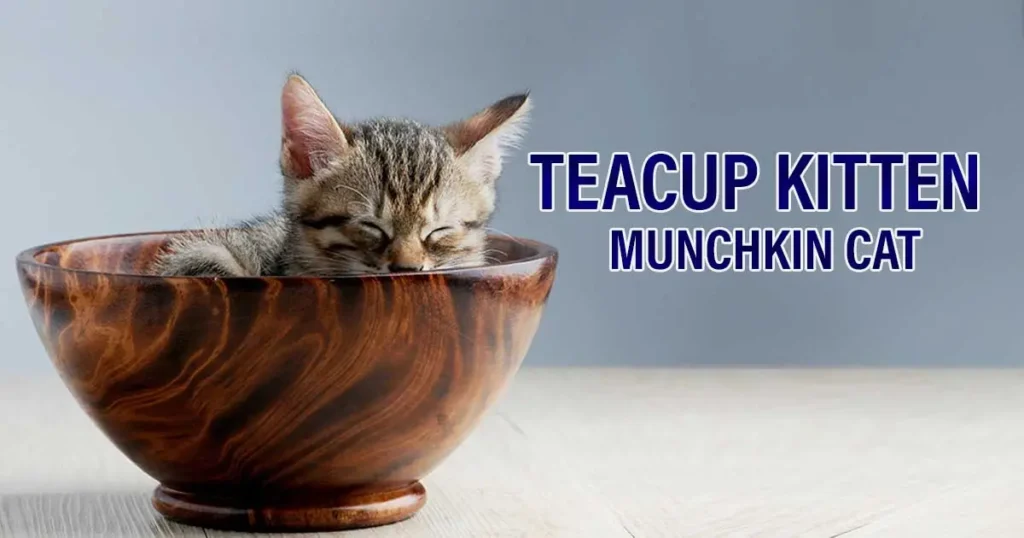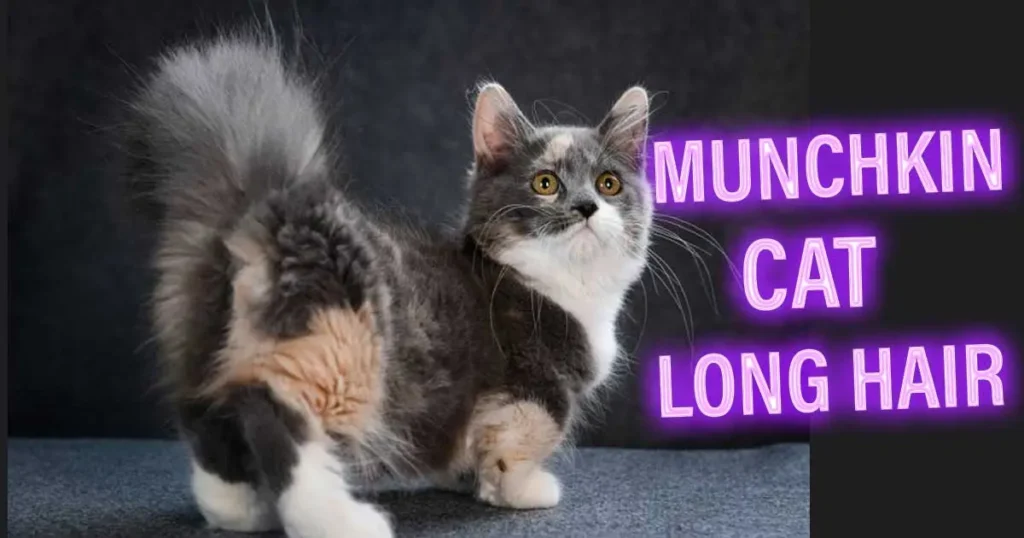Munchkin cats are a breed full of surprises, and these amazing facts about Munchkin cats will make you love them even more! Known for their short legs a result of a natural genetic mutation, these tiny felines are agile, playful, and incredibly charming. One of the most amazing facts about Munchkin cats is their puppy-like personality they follow their owners around and love interactive games.
Despite their stature, they’re confident climbers and skilled at exploring their environment, proving another of the amazing facts about Munchkin cats: their agility rivals that of taller breeds. These cats are famous for their “sitting up” pose, an adorable habit that highlights their curious nature, yet another of the amazing facts about Munchkin cats that captivates enthusiasts.
With affectionate temperaments and coats in countless colors and patterns, the amazing facts about Munchkin cats reveal why they’re such cherished companions worldwide. Their social demeanor and adaptability make them stand out, rounding off the many amazing facts about Munchkin cats that make them a delight to own.
12 Amazing Facts About Munchkin Cats
Munchkin cats are charming friendly and full of surprises, making them beloved companions for families and individuals alike!
- Short Legs, Big Personality
Munchkin cats are famous for their short legs, a result of a natural genetic mutation. Despite their stature, these cats are confident, playful, and full of energy, proving that size doesn’t limit their adventurous spirit. - Natural Origin
The Munchkin breed wasn’t created through selective breeding but was discovered in the 1980s when short-legged cats were found in Louisiana. These cats have existed naturally for decades, making them a unique addition to the feline world. - Incredible Agility
Though their legs are shorter, Munchkin cats are surprisingly agile. They love to run, play, and even climb. While their jumps may not be as high as other cats, their speed and enthusiasm more than make up for it. - “Magpie” Tendencies
Munchkins are known for their curiosity and have a reputation for collecting shiny or intriguing objects. They often stash their treasures in hidden spots, earning them the nickname “magpie cats.” - Lifespan and Health
With proper care, Munchkin cats can live long and healthy lives, averaging 12-15 years. Despite concerns about their short legs, they are generally robust and not significantly prone to health issues linked to their stature. - Highly Social
Munchkin cats are extremely friendly and thrive in social environments. They enjoy the company of humans, other cats, and even dogs, making them a great choice for multi-pet households. - Unique Sitting Posture
These cats are known for their adorable “sit up” posture, where they balance on their haunches with their short legs tucked close, resembling a meerkat. This stance is not only cute but also a hallmark of the breed. - Diverse Coat Types
Munchkin cats come in both short-haired and long-haired varieties, and their coats can appear in nearly any color or pattern, offering plenty of variety for cat lovers. - Intelligent and Trainable
Thanks to their high intelligence, Munchkins are easy to train. They can learn tricks, commands, and even how to walk on a leash, making them an engaging and interactive companion. - Recognized Breed
The Munchkin was officially recognized by The International Cat Association (TICA) in 1994. However, not all cat associations accept the breed due to debates about the ethics of breeding for their short legs.
These charming and playful cats may be small in stature, but their hearts and personalities are undeniably big, making them a favorite among cat enthusiasts worldwide!
Munchkin Cats Excellent with Kids Other Pets
Munchkin cats are renowned for their friendly, affectionate, and adaptable nature, making them an excellent choice for families with children and other pets. Their playful personality aligns well with kids, as they enjoy interactive games like chasing toys, playing fetch or exploring new areas together. Despite their short legs, Munchkins are agile and energetic, which keeps children entertained while fostering a strong bond between them.
These sociable cats are equally at ease around other animals, including dogs and fellow cats. Their non-aggressive demeanor and curious nature help them integrate seamlessly into multi-pet households. Munchkins are confident and outgoing often initiating play or calmly observing their surroundings before joining in. Their gentle temperament ensures they can adapt to various personalities, whether it’s a rambunctious puppy or a laid-back older cat.
With proper introductions and supervised interactions, Munchkin cats can thrive in a home filled with activity and companionship. Their loving disposition, coupled with their fun-loving spirit, makes them a delightful addition to any family dynamic.
How to Care for a Munchkin Cat
Caring for a Munchkin cat involves providing a balanced mix of attention, proper nutrition, grooming, and a safe, engaging environment. These unique and playful cats thrive when their physical and emotional needs are met.
1. Provide Proper Nutrition
Feed your Munchkin a high-quality, balanced diet suitable for their age, weight, and activity level. Choose premium cat food with essential nutrients, and avoid overfeeding to prevent obesity. Fresh water should always be available.
2. Regular Grooming
- Short-haired Munchkins: Require brushing once a week to remove loose fur and reduce shedding.
- Long-haired Munchkins: Need brushing 2-3 times a week to prevent tangles and matting.
Regular grooming also helps maintain their coat’s natural shine and allows you to check for skin issues.
3. Ensure Adequate Exercise
Munchkins may have short legs, but they are active and playful. Provide toys, climbing structures, and interactive playtime to keep them physically and mentally stimulated. Laser pointers, feather wands, and puzzle toys are excellent choices.
4. Create a Safe Environment
Ensure your home is cat-proofed, with secure spaces for your Munchkin to explore. Avoid placing fragile items on high surfaces, as Munchkins enjoy climbing but may have limited jumping ability. Provide scratching posts and cat trees for enrichment.
5. Routine Health Care
Schedule regular veterinary check-ups to monitor your cat’s health. Ensure they are vaccinated, dewormed, and protected from parasites. While Munchkins are generally healthy, be mindful of potential skeletal or joint issues.
6. Provide Social Interaction
Munchkins are social cats that crave companionship. Spend quality time interacting with them daily, whether it’s through play, cuddles, or simply being nearby. They also thrive in households with other pets or family members who can provide additional engagement.
7. Maintain Dental Hygiene
Brush your Munchkin’s teeth regularly with cat-safe toothpaste to prevent dental issues. Alternatively, provide dental treats or toys designed to promote oral health.
8. Keep Their Litter Box Clean
Munchkins are particular about cleanliness. Scoop their litter box daily and clean it thoroughly every week to ensure they remain comfortable using it.
By following these care tips, your Munchkin cat will enjoy a happy, healthy life filled with love and companionship.
Origins and History
Munchkin cats were first noted in the 1940s, but their modern lineage began in 1983 when a music teacher named Sandra Hochenedel discovered two pregnant cats with short legs, which led to the breeding of these key ancestors.
The name “Munchkin” was inspired by the little characters from L. Frank Baum’s The Wonderful Wizard of Oz.Official recognition of the breed came in 1997, but it has been a topic of controversy due to concerns over health implications associated with their short legs.
Unique Physical Traits
Munchkin cats are characterized by their short legs, which are approximately three inches shorter than those of typical cats.
Their body structure resembles that of standard cats, weighing between 5 to 9 pounds and typically standing about 4 to 7 inches tall. There are three classifications of leg lengths: standard, super-short, and “rug hugger”
Fascinating World of Munchkin Cats
The Munchkin cat breed arose from a spontaneous genetic mutation that causes their short legs. The first American Munchkin cat was a pregnant stray named Blackberry, rescued in Louisiana in the 1980. Munchkin cats are medium-sized, weighing between 4-9 lbs, with a moderate body type and medium-plush coat.
| Category | Details |
|---|---|
| Leg Length | Short legs due to genetic mutation |
| Weight | 5 to 9 pounds |
| Coat | Variety of colors and patterns |
| Size Comparison | Smaller stature compared to standard cats |
Their sociable nature and playful demeanor make them beloved companions, earning them the nickname “the corgis of the cat world.” While they’ve faced scrutiny and varying levels of recognition within the feline community, their undeniable charm and endearing personalities have endeared them to cat enthusiasts worldwide.
Unique Physical Characteristics
| Fact | Details |
|---|---|
| Short Legs | Munchkin cats are known for their distinctive short legs, a result of a genetic mutation. |
| Variety of Coats | They come in both short-haired and long-haired varieties, with a wide range of colors and patterns. |
| Agility | Despite their short legs, Munchkins are surprisingly agile and can run, jump, and climb like other cats. |
| Size | Munchkins are typically medium-sized cats, with a compact and muscular build. |
Genetic Mutation
The Munchkin breed owes its unique appearance to a spontaneous genetic mutation that affects the length of their legs. This mutation, believed to be a dominant gene, is responsible for their short-legged stature. It’s fascinating to note that this trait can vary in its expression, resulting in Munchkin cats with legs ranging from extremely short to slightly shorter than average.
Facts about Munchkin Cats
Munchkin cats are known for their distinctive short legs, which are a result of a natural genetic mutation. Originating in the 1980s, these cats have a lifespan typically ranging from 12 to 15 years, similar to that of standard-sized cats.
Origin: Munchkin cats originated in the United States in the early 1990s.
Size: Typically, Munchkin cats are medium-sized, with males weighing between 6-9 pounds and females weighing slightly less.
Hypoallergenic: Munchkin cats are not hypoallergenic, and they can still trigger allergies in sensitive individuals.
Care: Munchkin cats are relatively easy to take care of. They require standard feline care, such as regular grooming, a balanced diet, and routine veterinary check-ups.
Interesting Facts and Comparisons
Munchkin cats, named after the beloved characters from “The Wizard of Oz,” are celebrated for their endearing short legs, a result of a natural genetic mutation. Originating in the 1980s, these cats quickly captured attention for their unique appearance and playful demeanor.
| Fact | Details |
|---|---|
| Hoarding Habit | Munchkin cats are known for hoarding small objects, often hiding them in their favorite spots. |
| Nickname | They are sometimes called “magpies” because of their love for shiny objects. |
| Popularity | Munchkin cats have grown in popularity due to their unique appearance and charming personality. |
| Film and Media | Munchkins have appeared in various films, TV shows, and internet videos, capturing the hearts of many cat lovers. |
Munchkin Cats Are Fast and Furious
Munchkin cats are surprisingly fast runners despite their short legs. They have a lot of energy and can move around quickly, turning corners like “furry race cars”. Their low center of gravity gives them excellent traction and maneuverability.
Amazing Speed
They can travel quickly about the house, swerving with ease between toys and furniture. Munchkin cats, with their unmistakably short legs, may seem like they would be more slow than their more drawn out legged partners. Be that as it may, these little cats frequently shock with their dexterity and speed.
Lightning-fast Movements
Munchkin cats move quickly when they’re playing because of their rapid reactions. Munchkin cats are known for their lightning-quick developments, regardless of their short legs. Their dexterity and speed are a demonstration of their versatility and physicality.
They’re Not Good at Long Jumping
Contrasted with other feline varieties, Munchkin cats personality are less talented in lengthy hopping in view of their little legs. Rather, they utilize their smoothness and quick responses to investigate their current circumstance.
Munchkins Perch on Their Hind Legs
One of the most endearing traits of Munchkin cats is their tendency to perch upright on their hind legs, resembling a meerkat or kangaroo. This adorable posture, often referred to as the “Munchkin sit,” occurs because of their short legs and well-balanced body. Their muscular hindquarters allow them to sit upright comfortably, providing a stable base for this charming behavior.
Munchkins often adopt this position when they are curious or trying to get a better view of something in their environment. It’s not unusual to find them sitting like this to observe their surroundings, watch birds through a window, or inspect a new toy. This quirky characteristic is unique to the breed and adds to their playful and curious reputation.
Not only is the “Munchkin sit” an entertaining sight, but it also showcases the cat’s intelligence and adaptability. Whether they are balancing effortlessly or striking a pose for their humans, Munchkins truly know how to captivate hearts with their upright antics!
Conclusion
The Munchkin cat is a breed full of surprises, from their fascinating genetics to their playful and affectionate personality. Whether you’re drawn to their unique looks or their friendly demeanor, Munchkin cats make wonderful, loving companions.
FAQS
1. Are Munchkin cats rare?
They are relatively uncommon compared to other cat breeds, but they’re not extremely rare, as breeders across the globe now specialize in them.
2. Do Munchkin cats like to cuddle?
Yes, they are affectionate and enjoy spending time with their owners, often curling up for a cuddle.
3. Can Munchkin cats jump high?
Their short legs limit their ability to jump as high as longer-legged breeds, but they can still manage low furniture and small heights.
4. Are Munchkin cats prone to health problems?
While generally healthy, some may be predisposed to skeletal or spinal issues. Regular checkups can help ensure early detection and treatment.
